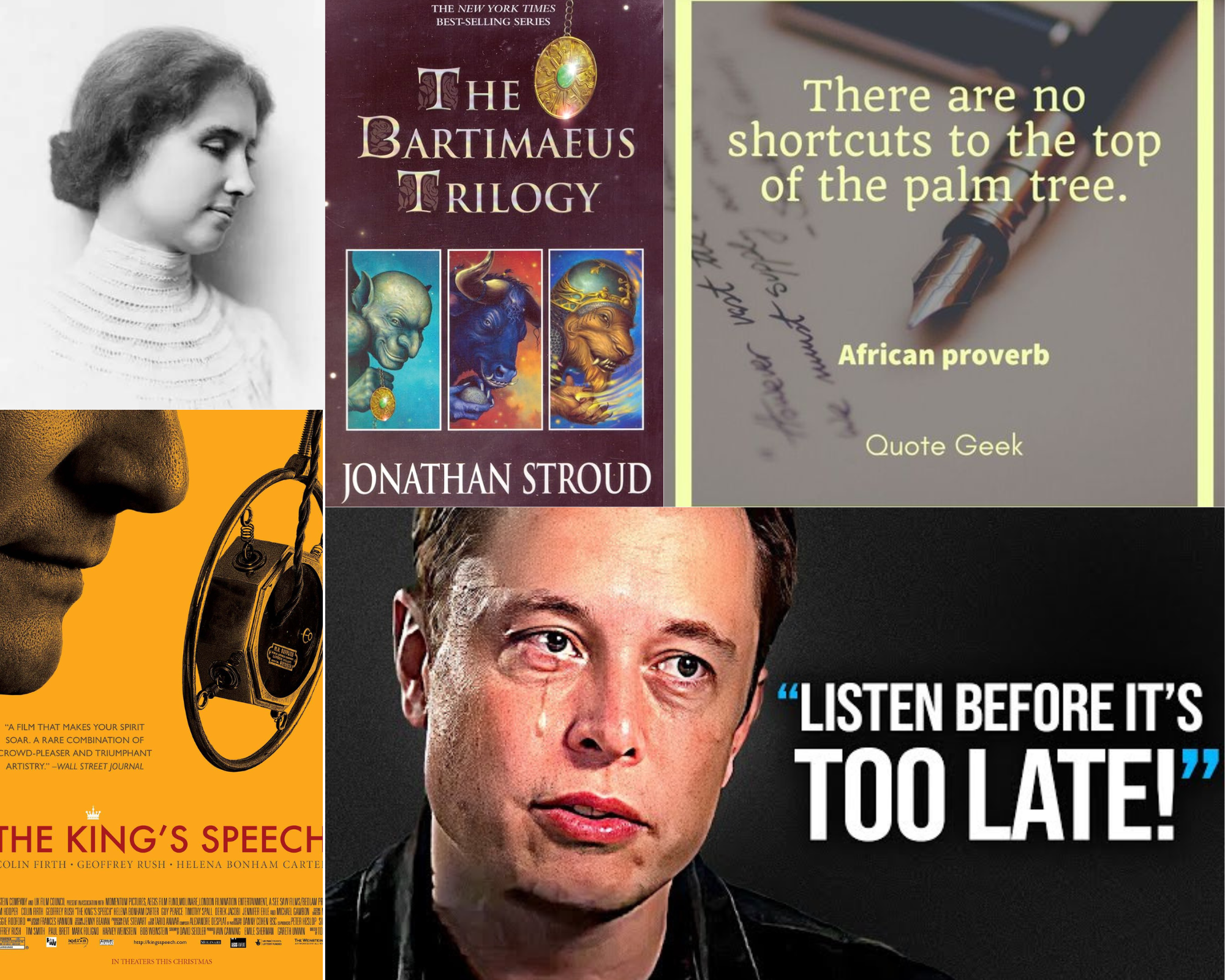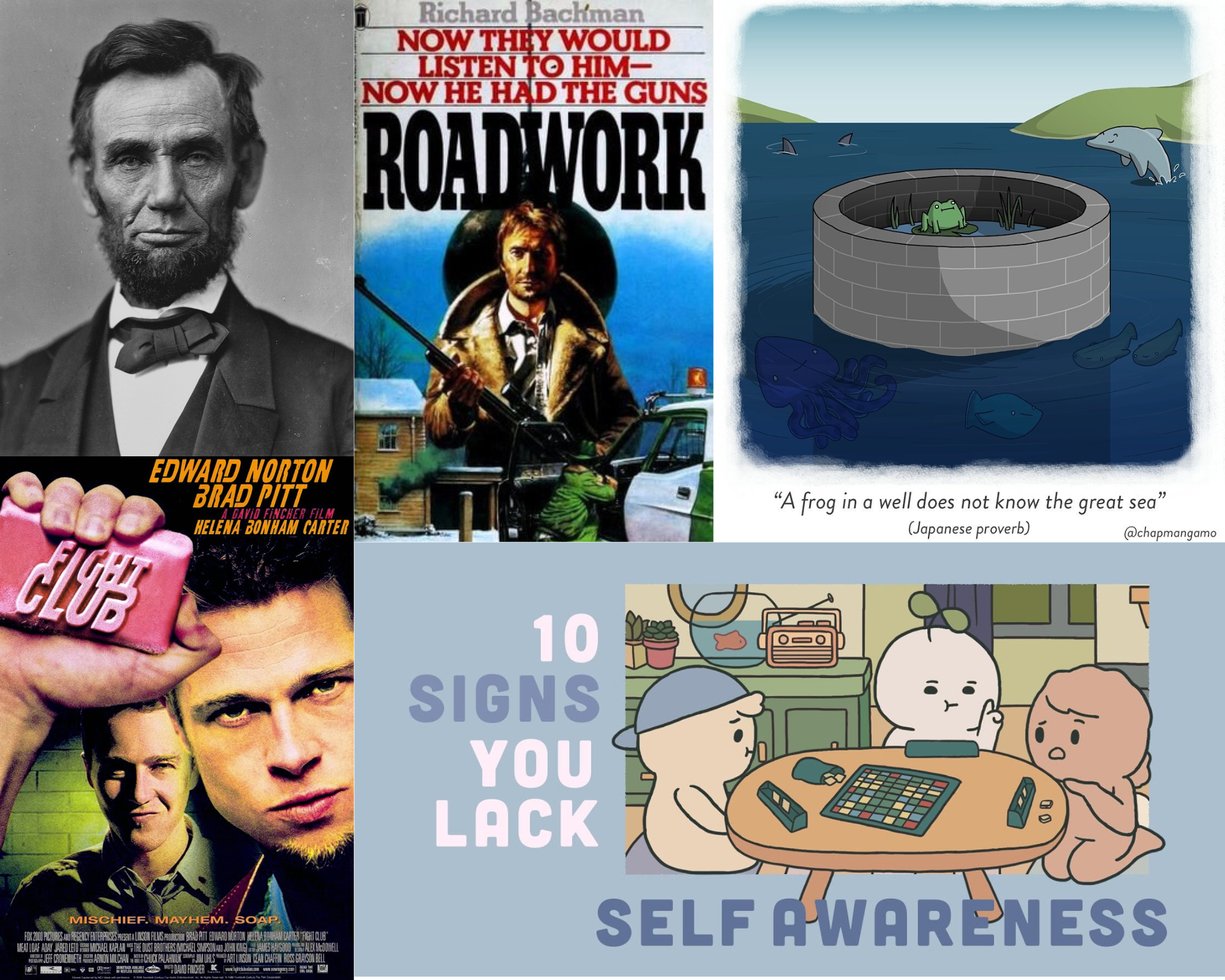Sunday Supplement #136 (December 17th, 2023)
Below is another Sunday Supplement with a quote worth sharing, a book worth reading, a movie worth watching, brainfood worth consuming, and a spiritual passage worth pondering.
Please take something away from these recommendations that enriches your week ahead!
Quote of the Week:
“A bend in the road is not the end of the road… unless you fail to make the turn.”
– Helen Keller
Book of the Week:
The Bartimaeus Sequence – Jonathan Stroud
The Bartimaeus Sequence is a fantasy series set in London in the late 1900s/early 2000s and set in an alternate history where the effects of magic, magicians, and demons have altered changes through the past of cities, countries, events, and technology.
Magicians are trained to summon demons to do their bidding. Throughout history, various individuals and empires have used demons to obtain power. The most recent nation to dominate is the British Empire, where a ruling elite of magicians holds all the power.
Jonathan Stroud’s first book in the original trilogy follows a young magician’s apprentice as he tries to take revenge on a magician who humiliated him by summoning a powerful demon to steal the magician’s magical amulet.
The apprentice and the demon then uncover a plot of espionage, murder, blackmail, and revolt to seize power and overturn the government.
I highly recommend this series. I’ve only read the original trilogy (the fourth book being a prequel), but it’s one of my favorite works of fiction and has a story that stays with me. The growth of the main characters throughout the trilogy is one of the best I’ve ever read.
Movie of the Week:
Tom Hooper’s The King Speech tells the story of Britain’s King George VI, his unexpected ascension to the throne, and the speech therapist who helped him overcome his stutter.
I don’t know how historically accurate the movie is, but it is a masterfully executed piece of storytelling in the medium of film.
David Seidler’s script, Danny Cohen’s cinematography, Tariq Anwar’s editing, Jenny Beavan’s costume design… everything in this film is from the top drawer.
Colin Firth as King George, Helena Bonham Carter as Queen Elizabeth, and Geoffrey Rush as speech therapist Lionel Logue steal the show in their respective roles.
The story is quite simple at its core, but it won Best Picture at the Oscars for a reason. That was one of four wins, and it had eight additional nominations. Check it out if you haven’t yet.
Brainfood of the Week:
Elon Musk Motivation Speech 2022 | Motivation2Study
In this video, Motivation2Study compiles a number of different Elon Musk interviews and speeches around perseverance and asking the right questions.
Whether you like Musk or not, there are many things in this compilation video he says that are worth listening to.
Motivation2Study is a YouTube channel with over four million subscribers and over three hundred million video views.
Their mission is to inspire, educate, and help students of all ages with both lack of motivation and mental health awareness. Check out their YouTube page if you enjoyed this video.
Closing Spiritual Passage:
“There are no shortcuts to the top of the palm tree.”
– African Proverb
I like the simplicity of this proverb, but it also fills my imagination with different scenarios of how one could climb to the top of a palm tree.
Having been a tree climber for most of my youth, I still smile and try to give it a go when I find myself with the urge and the time to climb.
But now I find that I have to think about the best way to climb the tree. Sometimes, it’s not straightforward, and I imagine that some kind of tool, shoe, assistance, or great strength would be needed to climb a palm tree.
At the core, the proverb shows that to climb to the top of the palm tree, you have to keep climbing. You can always give up and climb another tree, but if you persist smartly, you should be able to find a way.
Keep pursuing the goals you want to achieve, be smart about it, and have a blessed week ahead!
Comments closed

